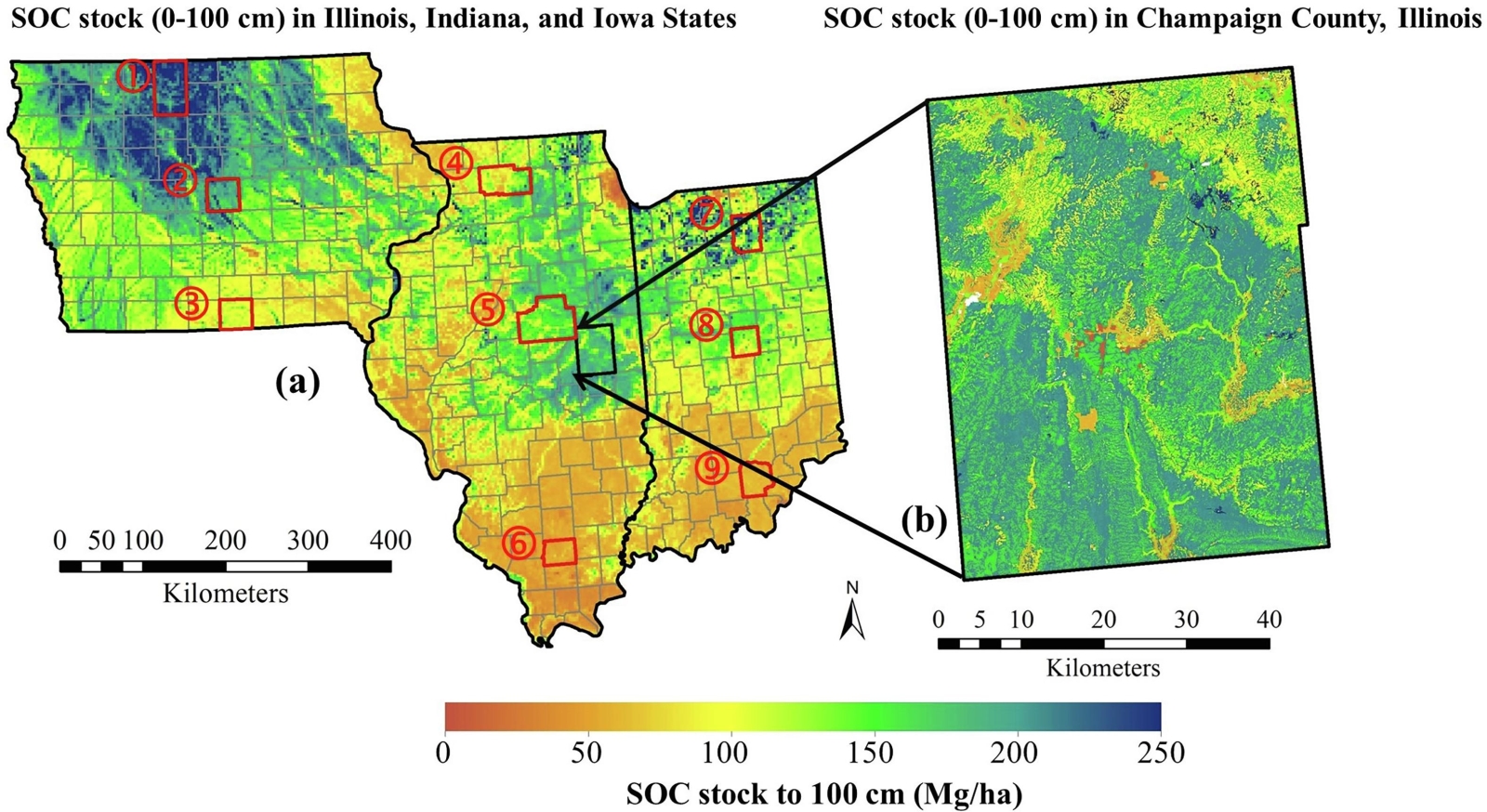January 01, 2023 | Geoderma |
Introduction: Understanding the carbon dynamics within croplands is crucial for combating climate change. This necessitates accurate assessments of carbon budgets and soil carbon credits, which reflect the carbon flow and storage in agroecosystems. However, uncertainties in soil organic carbon (SOC) data pose challenges to precise calculations, especially in regions like the U.S. Midwest. To address this, a US research team led by University of Illinois at Urbana-Champaign utilized a robust agroecosystem model to examine the impact of SOC data discrepancies on carbon budget assessments, focusing on corn-soybean rotation systems.
Key findings: The analysis uncovered significant variations in simulated carbon budgets depending on the soil dataset used, highlighting the critical role of precise SOC measurements. Interestingly, while initial SOC percentages heavily influenced carbon budget components, the calculation of soil carbon credits proved less sensitive to SOC inputs. Despite uncertainties, existing soil datasets like gSSURGO are suitable for soil carbon credit calculations, offering valuable insights for climate mitigation strategies in agriculture (Read more).

Figure | (a) Soil organic carbon (SOC) stock of Illinois, Indiana, and Iowa integrated over 0–100 cm using data from gSSURGO, and the location of Champaign County, Illinois; (b) The distribution of 0–100 cm SOC stock in Champaign County, Illinois.


